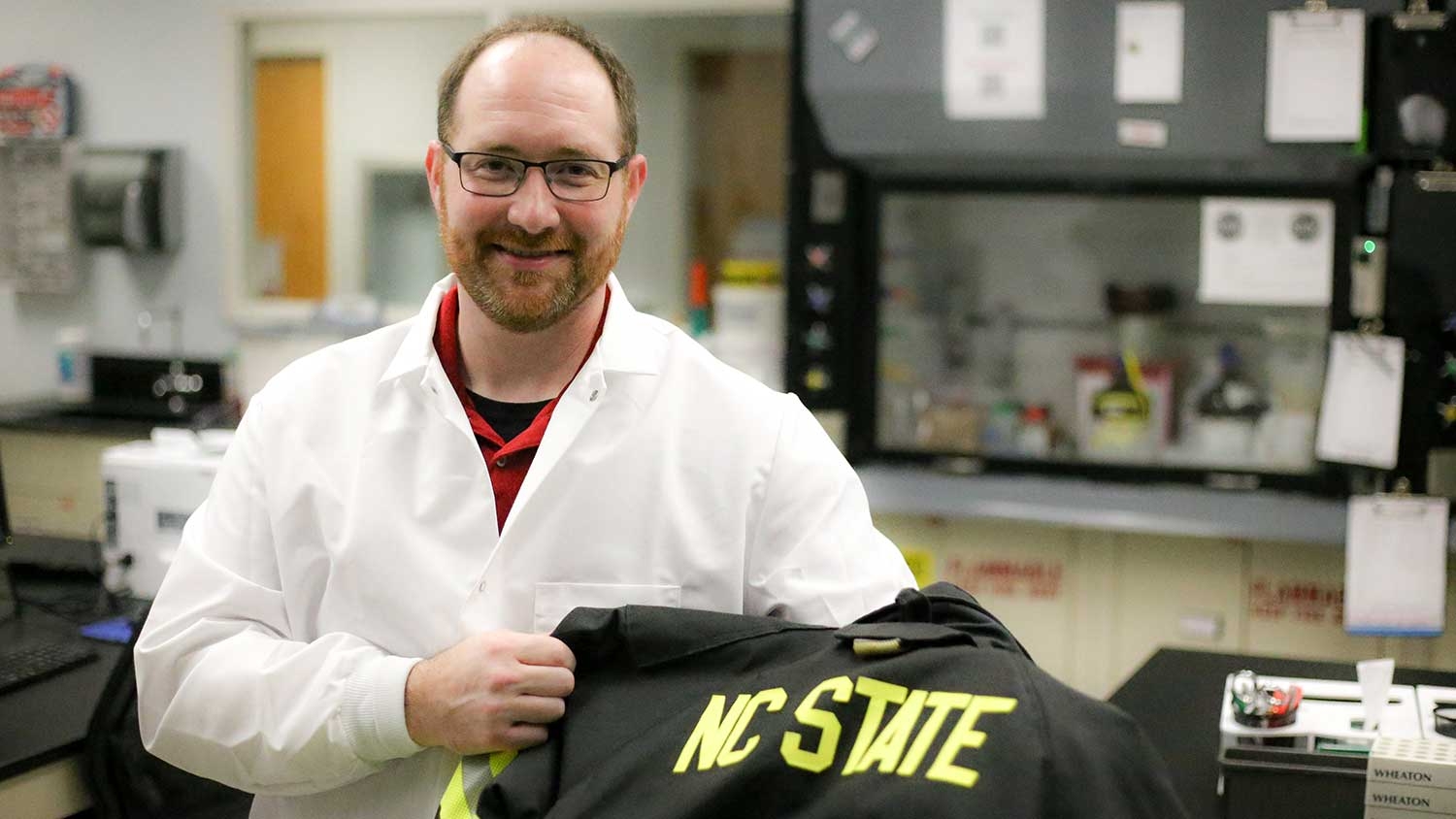Angel delivers Progress Energy lecture

(Photo: Nate DeGraff)
New energy policies should treat all countries equally, enable industries to plan for the future and not stifle economic growth, Fortune 500 CEO and NC State engineering alumnus Steve Angel told NC State students on Sept. 24.
Skyrocketing global energy needs due to rapid industrialization “will have serious consequences for both the developed and developing countries,” Angel said. Solving this complicated problem will require both existing fossil fuels and emerging renewable energy technologies, he added.
“There is no silver bullet to the worldwide problem of energy,” he said.
Angel, who graduated from NC State in 1977 with a bachelor’s degree in civil engineering, is chairman, president and CEO of Praxair, Inc., one of the largest industrial gases companies in the world. His address, which focused on practical approaches to today’s global energy challenges, was the latest in “Solving. Evolving. Engineering: The Progress Energy Distinguished Speakers Series.” The series was created in 2008 to foster dialogue around engineering’s capacity to solve some of the world’s greatest challenges.
Angel delivered his address as national and global leaders try to figure out how to meet the world’s growing demand for energy while minimizing the impact on the natural environment. Global energy needs have increased 80 percent since 1980 due to industrialization, with an expected additional increase of 30 percent by 2030, he said.
Praxair, Angel said, is committed to meeting the challenges of global greenhouse gas emissions, but he noted that the fossil fuels that produce those emissions are not going away.
“Current dependence on hydrocarbon energy sources will continue for a long time,” he said. “Renewable energy technologies will have an impact on the problems, but are expensive, are slow to develop and have their own issues that need to be addressed.”
Until there are viable alternatives to current hydrocarbon energy sources, Angel said, the practical solution is to develop and implement methods that allow cleaner fossil fuels to be used more efficiently.
Praxair, a Fortune 500 company with sales of $10.8 billion in 2008, is doing this now by developing technologies to assist other companies in their efforts to make their current uses of hydrocarbon sources cleaner and more efficient. Methods using carbon dioxide, oxygen and nitrogen gases are being developed to reduce emissions in coal production, enable storage of carbon dioxide in underground reservoirs and boost production from oil fields and natural gas wells.
In addition, the company has reduced its own direct and indirect carbon emissions through process efficiencies and expects a further 15 and 30 percent reduction in these emissions, respectively, by 2020, Angel said.
Praxair was also recently honored for the seventh consecutive year with selection to the Dow Jones World Sustainability Index, which tracks the performance of leading corporations that are committed to sustainability on a global scale. Angel attributes this recognition to Praxair’s successful carbon footprint reduction and the transparency of its environmentally responsible activities.
“Praxair is committed to playing a proactive role in making the world more productive in an environmentally responsible way,” said Angel, who joined the company as an executive vice president in 2001 after more than two decades with General Electric.
Angel was the third Progress Energy Distinguished Speaker. The first was noted author, social critic and technologist Steven Berlin Johnson, who spoke in March 2008. The second address, in October 2008, was delivered by internationally recognized entrepreneur, scholar and commentator Vivek Wadhwa.
The series is sponsored by Progress Energy, a Fortune 500 energy company headquartered in Raleigh that includes two major electric utilities serving approximately 3.1 million customers in the Carolinas and Florida.
- Categories:


